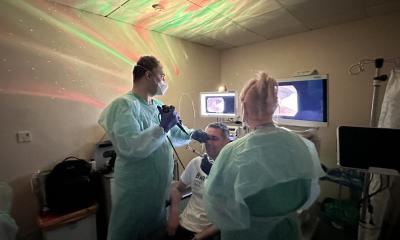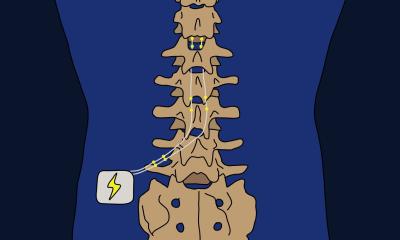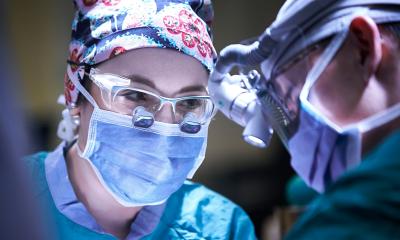News • Rise and shine
Caffeine shortens recovery time from general anesthesia
Caffeine helps quickly boost wakefulness following general anesthesia, a new study finds. The stimulant—used daily by more than 90 percent of adults in the U.S.—appears to alter physiological function in two different ways to shorten recovery time.
Caffeine works in two different ways to wake us up. It raises the body’s level of cyclic adenosine monophosphate (cAMP), a compound that regulates cell function. Previous studies have shown that an increase in cAMP levels speeds up recovery from general anesthesia. Caffeine also acts as an adenosine receptor antagonist. Activity in the nervous system slows down when adenosine binds to its receptors, causing sleepiness. An adenosine receptor antagonist is a substance that prevents adenosine—a compound that controls nerve activity—from binding to its receptors (molecules on the surface of the cells).
Researchers exposed adult rats to a 3 percent concentration of a general anesthetic for one hour to simulate the effects of undergoing a brief surgical procedure. During the last 10 minutes of exposure, the animals received an injection of either caffeine or a saline solution (the control group). The research team administered the tests on two more occasions with increasingly higher doses of caffeine. The caffeine group awoke from anesthesia more quickly than the control group each time. The reduction in waking time became much more significant—up to 55 percent more quickly—with the highest dosage.
To determine exactly how caffeine reduces waking time, the researchers administered additional trials, exposing the rats to another adenosine receptor antagonist (preladenant) or a plant-based supplement in the mint family (forskolin) that, similar to caffeine, elevates cAMP. Both of these agents caused reductions in waking time, but they were not as significant as the caffeine trials, in which both adenosine receptors were blocked and cAMP levels increased. These results suggest that “some of the accelerated recovery from anesthesia produced by caffeine is most likely mediated by block of adenosine receptors, but that elevation of [cAMP] accounts for the majority of the effect,” the research team wrote.
Source: American Physiological Society (APS)
07.08.2017






